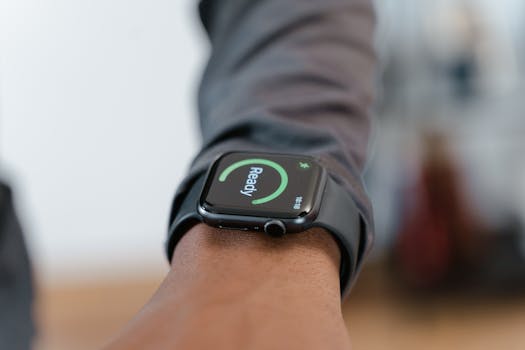
Table of Contents

- 1. Smart Home Technology
- 2. Health and Fitness Technologies
- 3. Personal Development Tools
- 4. Innovations for Sustainable Living
1. Smart Home Technology

In recent years, smart home technology has revolutionized the way we live. From smart thermostats to advanced security systems, these devices offer convenience, efficiency, and enhanced security. Smart thermostats, like the Nest, learn your heating and cooling preferences, adjusting the temperature automatically to save energy. Smart security systems provide peace of mind, allowing homeowners to monitor their properties remotely via smartphones. Furthermore, voice-activated assistants like Amazon Alexa and Google Assistant have become central to the smart home ecosystem, enabling users to control various devices through simple voice commands.
Beyond convenience, smart home technology contributes to energy savings. Smart lighting systems can be programmed to turn off when no one is home, reducing electricity bills. Additionally, smart appliances, such as refrigerators that can track expiration dates and suggest recipes, help minimize food waste while making meal planning easier. As more households adopt these technologies, the potential for a more energy-efficient and comfortable living environment continues to grow.
2. Health and Fitness Technologies

The health and fitness sector has seen a surge in innovative technologies that empower individuals to take control of their well-being. Wearable devices like Fitbit and Apple Watch track physical activity, heart rate, and even sleep patterns. These insights help users set and achieve fitness goals, making exercise more accessible and engaging. Moreover, fitness apps provide personalized workout plans and nutrition tracking, creating a holistic approach to health management.
Telehealth services have also gained popularity, especially in the wake of the pandemic. Patients can now consult healthcare professionals remotely, reducing the need for in-person visits and making healthcare more accessible. Mental health apps, like Headspace and Calm, offer mindfulness and meditation resources, promoting mental well-being alongside physical health.
Furthermore, advancements in nutrition technology, such as DNA-based diet plans and meal delivery services, allow individuals to tailor their diets to their genetic profiles and lifestyle needs. This personalized approach to nutrition enhances overall health and encourages long-term wellness.
3. Personal Development Tools

As people increasingly prioritize personal growth, a variety of technologies have emerged to support this journey. Online learning platforms, such as Coursera and Udemy, offer courses on a diverse range of subjects, allowing individuals to acquire new skills at their own pace. This flexibility makes education more accessible and encourages lifelong learning.
Productivity apps, such as Notion and Todoist, help users manage their time effectively, set goals, and track progress. These tools promote organization and efficiency, essential elements in achieving personal and professional aspirations. Additionally, habit-tracking apps assist users in building positive habits and breaking negative ones, fostering a growth mindset.
The rise of virtual coaching and mentorship platforms connects individuals with professionals who can provide guidance and support in their personal development journey. These services enhance accountability and motivation, ensuring individuals stay on track towards their goals.
4. Innovations for Sustainable Living

With growing awareness of environmental issues, new technologies are emerging to promote sustainable living. Smart energy management systems help homeowners monitor and optimize energy consumption, reducing their carbon footprint. Solar panels and energy storage solutions are becoming more accessible, allowing households to harness renewable energy and decrease reliance on non-renewable sources.
Innovative transportation options, such as electric vehicles (EVs) and bike-sharing programs, are transforming urban mobility. These alternatives not only reduce emissions but also promote healthier lifestyles through active transportation methods. Moreover, sustainable home products, like composting systems and water-saving devices, empower individuals to make eco-friendly choices in their daily lives.
The integration of technology in sustainability efforts not only supports environmental goals but also enhances the quality of life. Communities are increasingly leveraging technology to create smart cities that prioritize sustainability, connectivity, and livability for all residents.







